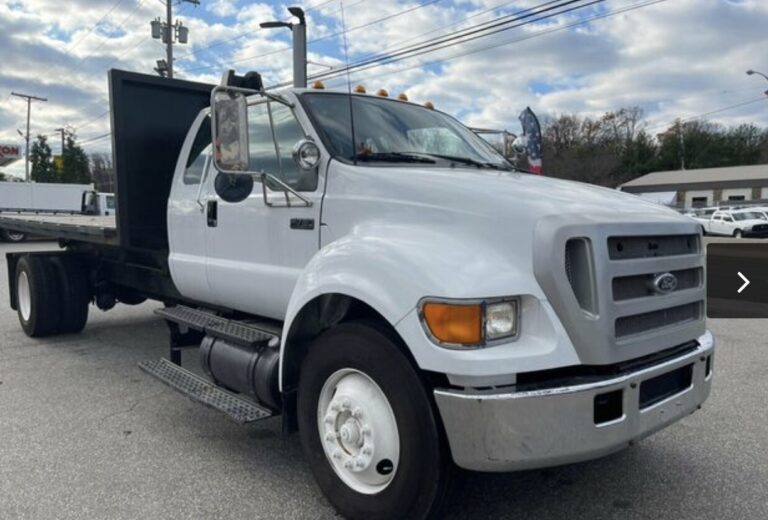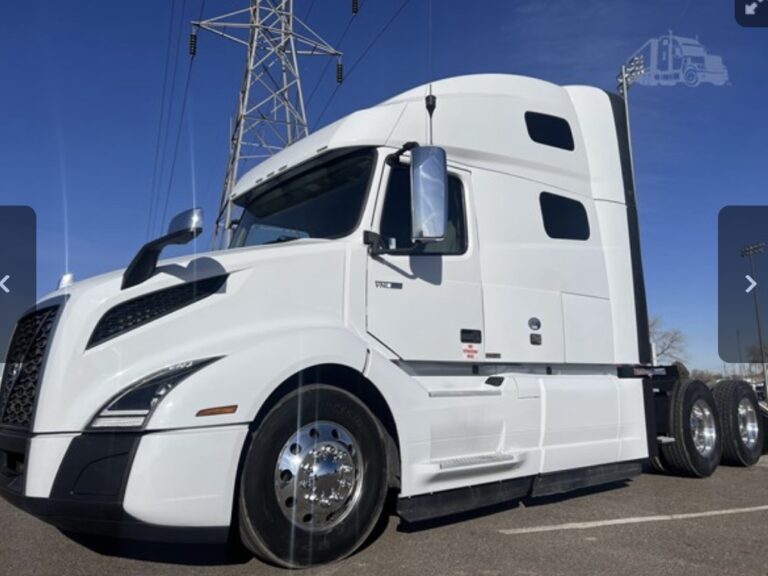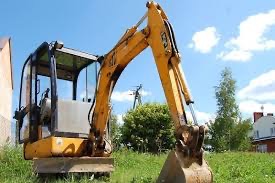What happens to the economy after the election?

Historically, elections, while influential in the short term, typically do not have as dramatic or lasting an impact on the overall trajectory of the economy or business climate as many fear. Market fluctuations often occur around elections due to uncertainty, but the economy tends to stabilize afterward, regardless of the candidate who wins.
Several factors support this perspective:
Institutional Resilience: The U.S. economy and its institutions are robust, driven by long-term trends and broader forces like technological innovation, consumer demand, and global markets. These forces are more impactful than any single political administration.
Bipartisan Economic Cycles: Historical data shows that both Democratic and Republican administrations have overseen periods of economic growth and recession. For example, the economy expanded under both Ronald Reagan and Bill Clinton, while recessions occurred under presidents from both parties.
Market Adaptation: Businesses and markets are highly adaptive. Despite short-term concerns, they eventually adjust to new policies or leadership. The stock market, for instance, often reacts initially to political uncertainty but then aligns with economic fundamentals.
Long-Term Trends: Large-scale economic drivers—such as demographics, globalization, and technological advancements—have a more substantial influence on business success than short-term political shifts. These trends are rarely altered by a single election.
In summary, while political outcomes may cause temporary hesitation, the long-term performance of businesses and markets is more influenced by enduring economic factors than by election results.

The Role of Credit Scores in Equipment Financing Approval
When it comes to acquiring heavy machinery or other necessary equipment for a business, many owners turn to financing options to avoid a large, upfront cash outlay. Equipment financing offers businesses a way to maintain liquidity while still getting the tools they need to grow. However, one of the most significant factors in determining whether a business can secure financing—and at what rate—is the company’s credit score.
In this article, we’ll explore the role credit scores play in equipment financing approval, why they matter, how they affect loan terms, and what you can do to improve your chances of getting the financing you need.
What Is a Credit Score?
A credit score is a numerical representation of a business’s creditworthiness, based on its history of managing credit and paying debts. For individuals, this is often a FICO score, ranging from 300 to 850, with higher numbers indicating better creditworthiness. Businesses, on the other hand, are typically judged by scores generated by credit reporting agencies like Dun & Bradstreet, Equifax, or Experian. These agencies analyze a company’s credit history and payment behavior to calculate a score that helps lenders assess the risk involved in extending financing.
Why Credit Scores Matter in Equipment Financing
Credit scores serve as a major indicator of risk for lenders. If a business has a strong credit score, it signals to the lender that the company has a reliable track record of repaying loans on time. A low score, on the other hand, indicates that a business may have struggled with credit management in the past, making it a riskier bet for the lender. As a result, the business may face higher interest rates, require a larger down payment, or even be denied financing altogether.
For equipment financing specifically, the stakes are often high because the cost of equipment can run into the hundreds of thousands of dollars. Lenders need assurance that the borrower will make payments as agreed. A strong credit score provides that assurance.
How Credit Scores Affect Loan Terms
A business’s credit score can influence various aspects of equipment financing, including:
Interest Rates – Businesses with excellent credit scores will often qualify for lower interest rates. This means they’ll pay less over time for the loan. Conversely, those with lower credit scores may be charged significantly higher rates, which increases the overall cost of financing.
Loan Amount – A better credit score may enable businesses to secure larger loan amounts. Lenders are more comfortable extending higher credit limits to borrowers with a proven track record of managing debt responsibly.
Down Payment – With a low credit score, businesses may be required to provide a larger down payment upfront. This serves as a form of security for the lender, reducing the risk if the borrower defaults on the loan.
Loan Approval – While it’s possible to secure equipment financing with less-than-perfect credit, businesses with very low credit scores may struggle to get approval at all. If financing is granted, it could come with less favorable terms, such as shorter repayment periods or additional collateral requirements.
The Impact of Personal Credit
For small businesses or startups that don’t have an established credit history, lenders may also look at the personal credit scores of the business owners. This is especially true if the business is a sole proprietorship or operates as a limited liability company (LLC). A strong personal credit score can sometimes compensate for a lack of business credit, but it can also work the other way—if the owner’s credit is poor, it may hurt the chances of approval.
Improving Your Credit Score for Equipment Financing
If your business’s credit score isn’t where it needs to be, there are steps you can take to improve it before applying for equipment financing:
Pay Bills on Time – The most important factor affecting both personal and business credit scores is timely payment of debts. Paying invoices, loans, and credit card bills by their due dates will have a positive effect on your score over time.
Reduce Debt – High credit utilization—meaning using too much of your available credit—can lower your score. Paying down existing debt and keeping balances low on revolving credit accounts can boost your creditworthiness.
Establish Credit History – If your business is relatively new, it may take time to build up a solid credit history. Open accounts with vendors who report payments to credit bureaus, and be diligent about paying them on time to establish good credit.
Monitor Your Credit – Regularly review your business credit reports for errors or discrepancies that could be lowering your score. If you find any inaccuracies, report them to the credit bureau for correction.
Work with a Financing Broker – An equipment finance broker can help you navigate the financing process and connect you with lenders who may be willing to work with businesses with lower credit scores. Brokers can often negotiate better terms than you would get by applying on your own.
Conclusion
Credit scores play a critical role in the equipment financing approval process. Lenders rely heavily on these scores to assess the risk of lending and to determine the terms of the loan. While businesses with higher scores benefit from lower interest rates and better loan terms, those with lower scores can still secure financing by taking steps to improve their creditworthiness and working with specialized lenders or brokers.

is there a brand of excavator that holds up better than others?
Yes, certain brands of excavators are known for their durability, reliability, and ability to hold up better over time compared to others. Here are some of the top brands recognized for their quality:
Caterpillar (CAT): Known for its robust build quality, high performance, and excellent after-sales service, CAT excavators are highly regarded in the industry for longevity and resale value.
Komatsu: A close competitor to Caterpillar, Komatsu excavators are praised for their advanced technology, durability, and efficiency. They offer excellent fuel economy and strong performance in tough conditions.
John Deere: John Deere excavators are well-regarded for their solid construction and ease of maintenance. They are particularly popular in North America due to their reliable service network.
Hitachi: Hitachi excavators are known for their durability, advanced hydraulics, and smooth operation. They tend to hold up well in demanding environments and are favored for their performance and reliability.
Volvo: Volvo excavators are recognized for their high build quality, operator comfort, and safety features. They are efficient, reliable, and often have lower operating costs due to advanced fuel-saving technologies.
Kobelco: Known for innovative features and strong performance, Kobelco excavators are durable and designed for heavy-duty work. They have a reputation for being efficient and easy to maintain.
These brands tend to perform better and maintain value longer due to their strong reputation, consistent quality, and excellent support networks.

How to Handle Credit Issues Affecting Your Truck Purchase Approval
Purchasing a truck can be a game-changer for your business, whether you’re starting a new venture or expanding an existing one. However, credit issues on your report can quickly become a major roadblock, making it difficult to secure financing. If you’ve been denied approval due to your credit, don’t lose hope! Here’s a step-by-step guide on how to address those credit issues and get back on the road to owning your truck.
1. Understand Your Credit Report
Start by obtaining a copy of your credit report from major credit bureaus like Equifax, Experian, and TransUnion. Review your report thoroughly for any errors, outdated information, or discrepancies that could negatively impact your score. Mistakes on credit reports are common, and correcting them could quickly improve your credit standing.
2. Dispute Errors on Your Credit Report
If you find errors on your credit report, such as incorrect personal information, accounts that aren’t yours, or incorrect late payments, file a dispute with the credit bureau. Most disputes can be submitted online, and bureaus are required to investigate within 30 days. Removing errors can lead to an immediate boost in your credit score.
3. Pay Down High Balances
High credit card balances relative to your credit limit (known as credit utilization) can significantly lower your score. Aim to pay down balances to below 30% of your credit limit. Start by paying off the accounts with the highest interest rates or the smallest balances, depending on what makes sense financially. This step can have a quick impact on your credit health.
4. Settle Outstanding Debts
If you have collections, charge-offs, or other outstanding debts, consider settling them. Contact creditors to negotiate a pay-for-delete agreement, which means they will remove the negative mark from your report upon payment. Even if they won’t remove the entry, paying off the debt can still improve your creditworthiness over time.
5. Establish a Positive Payment History
Consistent, on-time payments are key to building a strong credit score. Set up automatic payments or calendar reminders to avoid missing due dates. Even small payments can help establish a positive track record, which will improve your score over time and increase your chances of approval.
6. Build Credit with a Secured Credit Card
If your credit history is limited or has suffered severe damage, consider opening a secured credit card. This type of card requires a deposit, which acts as your credit limit. Using a secured card responsibly—by making small purchases and paying off the balance each month—can help rebuild your credit history and improve your score over time.
7. Get a Co-Signer
If your credit issues are severe and need more time to resolve, consider asking someone with good credit to co-sign your loan. A co-signer reduces the lender’s risk and can improve your chances of getting approved. Keep in mind, though, that the co-signer is equally responsible for the loan, so it’s essential to ensure you can make all payments on time.
8. Work with Specialized Lenders
Some lenders specialize in working with individuals who have credit issues, such as subprime lenders or credit unions. While the interest rates may be higher, they often provide options for those struggling with credit challenges. Be sure to research and compare rates to ensure you’re getting the best deal possible.
9. Seek Professional Credit Counseling
If managing your credit feels overwhelming, consider working with a professional credit counselor. These experts can help you develop a personalized plan to tackle your credit issues, negotiate with creditors, and establish better financial habits.
10. Be Patient and Persistent
Improving your credit takes time, but the rewards are worth it. Stay persistent in your efforts, regularly check your credit report, and celebrate small wins along the way. A higher credit score opens up more opportunities, better loan terms, and the ability to finance that truck purchase you’ve been dreaming of.
Final Thoughts
Handling credit issues on your report doesn’t have to be a roadblock to your truck purchase. By taking proactive steps to address your credit challenges, you can improve your chances of getting approved. Stay committed to the process, and you’ll be back on track in no time!

—
**The Most Reliable Semi-Truck Brands of 2024 According to Truckers**
Choosing the right semi-truck can make all the difference in a trucker’s livelihood. Reliability, comfort, and serviceability are critical factors that truckers consider when selecting a truck. Based on reviews and feedback from seasoned drivers, here are the top semi-truck brands known for their dependability in 2024:
1. **Freightliner**
Freightliner continues to lead the market with its focus on fuel efficiency and low maintenance costs. Truckers appreciate the ease of finding parts and service centers across the country, reducing downtime and ensuring that their trucks spend more time on the road. Models like the Cascadia are known for being workhorses that offer both comfort and performance.
2. **Kenworth**
Kenworth trucks are often described as the “Cadillacs” of the trucking world. They are built for long-haul comfort with advanced technology and a commitment to reducing driver fatigue. The W900 and T680 models, in particular, are celebrated for their durability, excellent handling, and superior build quality, making Kenworth a favorite among owner-operators and fleets alike.
3. **Peterbilt**
Peterbilt is synonymous with American trucking heritage and quality. Known for their iconic design and robust construction, Peterbilt trucks, like the 389 and 579 models, offer great reliability and are highly customizable. Drivers often praise their ease of maintenance, strong resale value, and the comfort provided during long hauls, making them a staple choice for those who take pride in their rig.
4. **Volvo**
Volvo has steadily risen in popularity due to its innovative safety features and driver-centric designs. Known for their quiet and smooth ride, Volvo trucks also excel in fuel efficiency and advanced technology integration. Models like the VNL series are noted for their spacious cabs, excellent aerodynamics, and strong reliability records, making them ideal for drivers who prioritize safety and comfort.
5. **Mack**
Mack trucks are built to handle the toughest jobs with reliability that truckers can count on. Known for their ruggedness and powerful engines, Mack trucks, such as the Anthem and Pinnacle models, are often chosen for their performance in demanding conditions. They’re highly regarded for their strong frames, heavy-duty components, and long-lasting reliability, making them a preferred choice for construction and heavy-duty hauling.
**Final Thoughts**
While all these brands offer reliable options, the best truck ultimately depends on the driver’s specific needs, whether it’s fuel efficiency, comfort, or rugged durability. These brands have earned their reputations through years of consistent performance, and each offers a range of models that cater to different types of drivers. As always, the best advice is to test drive, consult other drivers, and choose a truck that aligns with your specific requirements.
—
Let me know if you’d like further changes or additions!

The Pros and Cons of Buying a Repo Truck from a Finance Company
When it comes to acquiring a truck for your business, buying a repo truck from a finance company can be an enticing option. Repo trucks, or repossessed trucks, are vehicles that have been taken back by the lender due to the previous owner’s failure to make payments. They are often sold at a lower price, making them an attractive choice for budget-conscious buyers. However, there are both advantages and disadvantages to consider. Let’s delve into the pros and cons of purchasing a repo truck from a finance company.
Pros of Buying a Repo Truck
**1. Lower Purchase Price: One of the most significant benefits of buying a repo truck is the reduced price. Repo trucks are typically sold at a discount compared to their market value, providing an opportunity for substantial savings.
**2. Potential for Good Deals: Finance companies often want to quickly offload repo trucks to recover their losses. This can lead to excellent deals for buyers, especially if the truck is in good condition.
**3. Less Depreciation: Since repo trucks are generally priced lower, the initial depreciation impact on your investment is less compared to buying a brand-new or slightly used truck.
**4. Negotiation Opportunities: There might be more room for negotiation when purchasing a repo truck, giving you the chance to secure a better deal or additional perks.
**5. Streamlined Purchase Process: Finance companies typically have a straightforward sales process, which can be more efficient compared to private sales or dealership purchases.
Cons of Buying a Repo Truck
**1. Limited Vehicle History: Repo trucks may come with an incomplete or unclear history. Without detailed maintenance records, you might face unforeseen issues or repairs.
**2. Condition Uncertainty: Repo trucks are often sold as-is, meaning you might not be aware of the truck’s current condition until after the purchase. This could result in unexpected repairs or maintenance costs.
**3. No Warranty: Most finance companies sell repo trucks without any warranty, leaving you responsible for any future repairs or issues that arise.
**4. Potential for Hidden Issues: There’s a risk of hidden problems with repo trucks, as they might not have been well-maintained by the previous owner. A thorough inspection is crucial to identify any underlying issues.
**5. Competitive Buying Environment: Because repo trucks are sold at attractive prices, they can attract many buyers. This competitive environment might limit your options or lead to higher competition for desirable models.
Conclusion
Buying a repo truck from a finance company can offer significant cost savings and potential deals, making it an appealing choice for many buyers. However, it’s essential to weigh the pros and cons carefully. While the lower price and negotiation opportunities are attractive, the lack of vehicle history and warranty can pose risks. If you decide to pursue a repo truck purchase, ensure you conduct a thorough inspection and understand the vehicle’s condition to avoid potential pitfalls. By considering these factors, you can make an informed decision and find a repo truck that fits your needs and budget.
.

Finding a Dependable Used Dump Truck: Dealer vs. Private Seller
Buying a used dump truck can be a smart and cost-effective choice, whether you’re expanding your fleet or starting a new business. However, the challenge lies in finding a dependable vehicle that meets your needs without breaking the bank. Here’s a quick guide on what to look for when purchasing a used dump truck from a dealer versus a private seller.
**Buying from a Dealer**
**Pros:**
Inspection and Certification:** Dealers often provide detailed inspections and certifications, ensuring the truck meets specific quality standards.
– Warranties and Service Packages:** Many dealers offer warranties or service packages, giving you peace of mind in case of unexpected repairs.
– Financing Options:** Dealers typically offer in-house financing, making the buying process smoother if you need to secure a loan.
**Cons:**
– Higher Prices:** You’ll likely pay more when buying from a dealer due to added services like warranties and inspections.
**Buying from a Private Seller**
**Pros:**
– Lower Cost:** Trucks from private sellers are often cheaper since there are no dealership fees or added services.
– Direct Negotiations:** You have the flexibility to negotiate directly with the owner, potentially scoring a better deal.
**Cons:**
– Higher Risk:** Private sellers rarely offer warranties, and the trucks are usually sold “as-is.” This means you take on more risk if the truck has hidden issues.
– Limited History and Inspection:** The truck may not have undergone the same thorough inspections as those sold by dealers, so it’s crucial to have it checked by a trusted mechanic.
**Tips for a Dependable Purchase**
1. Get a Professional Inspection:** Always have the truck inspected by a qualified mechanic, especially if buying from a private seller.
2. Check Maintenance Records:** Ask for maintenance logs to get an idea of the truck’s history and how well it has been cared for.
3. Test Drive:** Take the truck for a test drive to assess its performance, handling, and any potential issues.
**Conclusion**
Whether you choose a dealer or a private seller, the key is to do your homework. While dealers offer more security through inspections and warranties, private sellers can provide better deals if you’re willing to take on some additional risk. Always inspect the truck thoroughly, check its history, and be prepared to negotiate to find the best deal on a dependable used dump truck.

The Risks of Buying a Low cost Chinese-Made Mini Excavator
Mini excavators are a popular choice for small construction projects, landscaping, and other light-duty work. With many options on the market, it can be tempting to buy a cheap Chinese-made mini excavator. While these machines often come with an attractive price tag, there are several risks that buyers should be aware of before making a purchase.
1. **Low-Quality Materials and Build
Many cheap Chinese-made mini excavators are constructed with lower-quality materials, which can compromise the machine’s overall durability and performance. Parts like the frame, hydraulics, and engine may not meet the same standards as those found in more reputable brands. As a result, these machines are more prone to breakdowns, cracks, and other issues that can halt your work and increase long-term costs.
2. **Lack of Reliable Warranties and Support
While reputable brands often offer warranties and comprehensive support networks, many Chinese manufacturers do not provide the same level of customer care. If something goes wrong, you may find it difficult to get replacement parts, service, or technical support. The lack of reliable after-sales support can lead to extended downtime, causing delays in your projects and unexpected expenses.
3. **Difficulty Finding Replacement Parts
Finding replacement parts for a Chinese-made mini excavator can be a significant challenge. These machines often have unique components that are not readily available in local markets, forcing you to rely on overseas suppliers with long shipping times. This can lead to costly delays and even render the excavator unusable if parts are not obtainable.
4. **Poor Resale Value**
While the initial cost of a Chinese-made mini excavator may be low, its resale value is often significantly lower compared to established brands. Poor quality, lack of brand recognition, and potential maintenance issues make these machines less desirable in the used equipment market. As a result, you may struggle to recoup even a fraction of your investment if you decide to sell or upgrade. 5. **Potential Safety Concerns**
Safety is paramount when operating heavy machinery, and substandard construction can pose serious risks. Cheap Chinese-made mini excavators may lack critical safety features or have unreliable components that can fail unexpectedly. This increases the likelihood of accidents on the job site, putting operators and bystanders at risk.
Conclusion
While the low price of a cheap Chinese-made mini excavator might seem appealing, the risks associated with quality, support, and safety make it a potentially costly choice in the long run. Investing in a reliable, well-supported machine from a reputable manufacturer is often the smarter decision, saving you time, money, and headaches over the life of your equipment.

Tax Advantages of Financing Equipment for Your Business
Investing in new equipment is a critical move for growing your business, but the costs can be significant. Fortunately, financing your equipment comes with tax advantages that can help offset these expenses, making it a smart financial strategy.
One of the key tax benefits is the Section 179 deduction. This provision allows businesses to deduct the full purchase price of qualifying equipment and software purchased or financed during the tax year, up to a specific limit. This means you can write off the entire cost of the equipment in the year you place it into service, rather than depreciating it over several years.
Additionally, many businesses can benefit from bonus depreciation. This allows you to deduct a large percentage of the equipment’s cost in the first year, on top of the Section 179 deduction. Bonus depreciation is especially useful for businesses that exceed the Section 179 spending cap.
Financing your equipment can also help manage cash flow. By spreading out the cost of the equipment over time, you can preserve your working capital for other expenses while still enjoying the tax benefits associated with ownership.
In summary, financing equipment for your business not only helps you acquire the tools you need to grow but also offers significant tax savings. These tax incentives can make a substantial difference in your bottom line, allowing you to reinvest more into your business.
Always consult with a tax professional to ensure you maximize these benefits according to the latest tax laws.

Dealer vs. Private Seller: Which is the Better Option for Buying Heavy Equipment?
When it comes to purchasing heavy equipment, one of the first decisions you’ll face is whether to buy from a dealer or a private seller. Each option has its pros and cons, and the best choice depends on your specific needs, budget, and risk tolerance. Buying from a Dealer
**Advantages:**
Warranties and Support: Dealers often provide warranties on the equipment they sell, offering peace of mind and protection against unexpected repairs. They also typically offer after-sales support, including maintenance services and parts availability.
Financing Options: Dealers usually have established relationships with financing institutions, making it easier to secure financing directly through them. This convenience can save you time and effort in sourcing funding independently.
– **Inspection and Certification:** Equipment from a dealer is often inspected and certified, ensuring that it meets specific standards. This reduces the risk of buying equipment with hidden issues or defects.
**Disadvantages:**
Higher Costs:
The added benefits of buying from a dealer often come at a premium. You may find that equipment sold by dealers is more expensive than similar models offered by private sellers.
Buying from a Private Seller
**Advantages:**
Lower Prices:
Private sellers usually offer lower prices than dealers. This can be particularly advantageous if you’re on a tight budget or looking for a specific piece of equipment at a bargain.
– **Direct Negotiations:** When buying from a private seller, you’re dealing directly with the owner, which can lead to more flexible negotiations on price and terms.
**Disadvantages:**
– **Higher Risk:** Unlike dealers, private sellers rarely offer warranties or guarantees. This means you’re taking on more risk, as there may be undisclosed issues with the equipment. A thorough inspection by a qualified mechanic is essential before finalizing the purchase.
– **Limited Financing Options:** Financing can be more challenging to secure when buying from a private seller. You’ll likely need to arrange your own financing, which can be time-consuming and may come with less favorable terms.
Conclusion
Deciding whether to buy heavy equipment from a dealer or a private seller depends on your priorities. If you value peace of mind, warranties, and support, a dealer is likely the better option. However, if you’re looking for a bargain and are willing to take on a bit more risk, a private seller might be the way to go. Consider your needs carefully and weigh the pros and cons before making your decision.

Common Pitfalls in Equipment Financing and How to Avoid Them.
Equipment financing can be a valuable tool for businesses looking to acquire essential machinery, vehicles, or technology without making a significant upfront investment. However, like any financial decision, it comes with potential pitfalls that can lead to unnecessary costs, delays, and even jeopardized business operations. Being aware of these common issues and knowing how to avoid them can save your business time, money, and stress.
1. Not Understanding the Total Cost of Financing
One of the most significant pitfalls in equipment financing is underestimating the total cost. Many business owners focus solely on the monthly payment without considering the interest rate, fees, and the loan term. The true cost of financing includes all these factors, and failing to account for them can lead to overpaying for the equipment.
How to Avoid It:
Before signing any financing agreement, request a clear breakdown of all costs involved, including interest, fees, and any other charges. Use this information to calculate the total cost of financing and compare it with other options. Additionally, consider whether leasing or purchasing the equipment outright might be more cost-effective in the long run.
2. Choosing the Wrong Financing Option
Businesses often rush into a financing decision without exploring all the available options. Whether it’s a lease, loan, or line of credit, each financing option has its pros and cons. Selecting the wrong one can lead to higher costs, less flexibility, or even difficulties in upgrading equipment in the future.
How to Avoid It:
Take the time to understand the different types of financing available. Consider the nature of your business, the equipment’s life expectancy, and your cash flow when choosing an option. Consult with a financial advisor or an equipment finance broker to help you make an informed decision.
3. **Overlooking the Importance of Creditworthiness
Your business’s creditworthiness plays a crucial role in securing favorable financing terms. A poor credit score or a weak financial history can result in higher interest rates, restrictive terms, or even denial of financing. Some businesses neglect to review their credit standing before applying, leading to unexpected setbacks.
How to Avoid It:
Regularly monitor your business credit score and address any issues before applying for financing. If your credit score is less than ideal, work on improving it by paying down existing debt and ensuring all payments are made on time. Alternatively, consider securing financing through a broker who may have access to lenders willing to work with businesses with lower credit scores.
4. **Ignoring the Fine Print**
Equipment financing agreements are often filled with complex terms and conditions. Business owners may overlook or misunderstand clauses related to prepayment penalties, equipment maintenance, insurance requirements, or what happens in case of default. These overlooked details can lead to unexpected expenses or complications.
How to Avoid It:
Always read the fine print of any financing agreement carefully. If there are terms you don’t understand, ask for clarification or seek legal advice. It’s better to spend time upfront understanding the agreement than to be surprised by unfavorable terms later.
5. **Failing to Plan for the Future**
Another common mistake is not considering the future needs of your business. Equipment that meets your needs today may become obsolete or insufficient as your business grows. Without a plan for upgrading or replacing equipment, you may find yourself locked into a financing agreement that no longer serves your best interests.
How to Avoid It:
When choosing equipment and financing terms, think about your business’s long-term needs. Consider options that allow for flexibility, such as leases with upgrade clauses or shorter loan terms. This approach ensures that your business can adapt to changing circumstances without being burdened by outdated or inadequate equipme Conclusion
Equipment financing is a powerful tool for business growth, but it’s essential to navigate it carefully to avoid common pitfalls. By understanding the total cost, choosing the right financing option, maintaining good credit, reading the fine print, and planning for the future, you can make informed decisions that support your business’s success. Taking the time to avoid these common mistakes can lead to more favorable financing terms, improved cash flow, and a stronger financial foundation for your business.

Lorem ipsum dolor sit amet, consectetur adipiscing elit. Ut elit tellus, luctus nec ullamcorper mattis, pulvinar dapibus leo.
Questions to ask a Dealer before buying a Heavy piece of machinery
Purchasing heavy equipment is a significant investment for any business. It’s crucial to ensure that you are making a well-informed decision, as the right machinery can promote productivity, while the wrong choice can lead to costly repairs and downtime. To help steer your purchasing journey in the right direction, here are essential questions to ask dealers before making a purchase.
1. What is the Equipment’s History?
Understanding the equipment’s history is vital. Ask the dealer if the machinery is new or used, and inquire about any previous usages. For used equipment, find out how many hours it has been operated, previous owners, and any history of repairs or accidents. Knowing the history can indicate potential issues down the line.
2. What Maintenance Has Been Performed?
Regular maintenance is key to prolonging the lifespan of heavy equipment. Ask the dealer for records of maintenance performed on the machinery. Inquire about any repairs that have been made and the routine maintenance schedule. A well-maintained machine generally has fewer issues and can be a better investment.
3. Are There Warranties or Guarantees?
Warranties can provide peace of mind when purchasing heavy equipment. Ask the dealer what warranty options are available and what they cover. Specifics regarding the length of the warranty, parts covered, and support services included are essential details to clarify. A reputable dealer will often offer warranties that can help protect your investment.
4. What Is the Total Cost of Ownership?
The purchase price is only one aspect of buying heavy equipment. It’s important to understand the total cost of ownership, which includes maintenance, fuel, insurance, and potential repair costs. Ask the dealer for estimates on total operating costs and how the machine’s efficiency can influence those expenses.
5. Can I Test the Equipment?
Before committing to a purchase, it’s ideal to test the equipment if possible. Inquire whether the dealer allows you to operate the machine before buying. A hands-on experience can help you evaluate the equipment’s comfort, functionality, and suitability for your needs.
6. What Financing Options Are Available?
Financing can have a significant impact on your purchasing decision. Ask the dealer about different financing options available, including leasing programs or payment plans. Understanding your financing options can help you align the purchase with your budget and cash flow.
7. What Support and Training Do You Offer?
Using heavy equipment often requires specialized knowledge. Ask the dealer if they provide training for your team on how to operate and maintain the machinery properly. Additionally, inquire about ongoing support after the purchase, including access to parts and service.
8. Can You Provide References or Reviews?
A reputable dealer will have satisfied customers willing to share their experiences. Ask for references or check online reviews to gain insights into the dealer’s reputation. Hearing from other customers can help reinforce your confidence in their reliability and services.
9. What Are the Delivery Terms?
Logistics are a critical aspect of any equipment purchase. Ask the dealer about the delivery process, including estimated delivery times and any associated costs. Understanding the delivery terms and conditions ensures there are no surprises when it comes time to take possession of the machinery.
10. What Are the Resale Options?
Lastly, it’s wise to inquire about the equipment’s resale value. Ask the dealer about how other similar machines have held their value over time. Understanding potential resale options can provide further insight into the equipment’s long-term worth.
Conclusion
Purchasing heavy equipment is a significant commitment, and taking the time to ask the right questions can lead to a more informed and confident buying decision. By seeking clarity on the equipment’s history, maintenance, costs, support, and more, you can ensure that your investment contributes positively to your business operations. With careful consideration and the right information, you can make a purchase that meets your needs and exceeds your expectations.
The Essential Guide to Dump Truck Financing: How to Secure Funding for Your Construction Business**
Securing the right financing for your construction business can be a critical step in ensuring its growth and sustainability. Dump trucks are a vital piece of equipment for many construction companies, enabling the efficient transportation of materials. However, their high cost can be a barrier for many businesses. This guide will help you navigate the process of dump truck financing and secure the funding you need.
1. Understanding Dump Truck Financing**
Dump truck financing involves obtaining a loan or lease specifically for purchasing dump trucks. This specialized type of financing allows construction businesses to acquire these essential vehicles without the upfront costs, spreading the payments over time to manage cash flow effectively.
2. Benefits of Dump Truck Financing**
Preserve Capital**: Financing allows you to preserve your working capital for other operational expenses.
– **Manage Cash Flow**: Spread out the cost of the truck over a period, making it easier to manage your budget.
– **Tax Benefits**: Depending on your location, you may be able to deduct the interest payments and depreciation on your taxes.
– **Immediate Equipment Acquisition**: Get the equipment you need now to start or continue projects without delay.
3. Types of Financing Options**
– **Loans**: Traditional loans from banks or financial institutions. You own the truck once the loan is paid off.
– **Leases**: Leasing options where you make regular payments to use the truck. At the end of the lease term, you may have the option to purchase the truck.
– **Equipment Financing**: Specialized loans where the dump truck itself serves as collateral.
4. How to Qualify for Dump Truck Financing**
– **Credit Score**: A good credit score increases your chances of securing favorable terms.
– **Business Financials**: Lenders will review your business’s financial statements, including income, cash flow, and existing debt.
– **Down Payment**: Be prepared to make a down payment, typically around 10-20% of the truck’s value.
– **Collateral**: The dump truck often serves as collateral, reducing the lender’s risk.
5. Steps to Secure Dump Truck Financing**
– **Research Lenders**: Look for lenders specializing in equipment financing or those with experience in the construction industry.
– **Gather Documentation**: Prepare your business financial statements, tax returns, and any other required documentation.
– **Submit Application**: Complete the lender’s application process, providing all necessary information.
– **Review Offers**: Compare the terms and interest rates from different lenders to find the best deal.
– **Finalize Agreement**: Once you select a lender, review the financing agreement carefully before signing.
6. Tips for Successful Financing**
– **Maintain Good Credit**: Keep your credit score high by paying bills on time and managing debt responsibly.
– **Build a Strong Financial Profile**: Demonstrate consistent income and healthy cash flow in your business.
– **Shop Around**: Don’t settle for the first offer. Compare multiple lenders to get the best terms.
– **Negotiate Terms**: Don’t be afraid to negotiate the interest rate, down payment, and repayment terms.
**Conclusion**
Dump truck financing can provide your construction business with the essential equipment needed to take on new projects and grow. By understanding your financing options, preparing your financials, and choosing the right lender, you can secure the funding necessary to keep your operations running smoothly and efficiently. Take the steps outlined in this guide to ensure a successful financing experience and drive your business towards greater success.

**Unlocking Capital: The Benefits of Using Heavy Machinery as Collateral for Working Capital Loans**
In today’s competitive business landscape, access to capital is crucial for growth and sustainability. One innovative way to unlock this capital is by using heavy machinery as collateral for working capital loans. This approach offers several benefits that can provide your company with the financial flexibility it needs to thrive.
**1. Immediate Access to Funds**
Using heavy machinery as collateral allows businesses to access funds quickly. Since heavy equipment typically has a high market value, lenders are more willing to approve loans faster, often within 24-48 hours. This rapid access to capital can be a game-changer for businesses needing to seize opportunities or manage unexpected expenses.
**2. Preserving Cash Flow**
A working capital loan secured by heavy machinery helps maintain your company’s cash flow. Instead of selling off assets or depleting cash reserves, you can leverage your existing equipment to obtain the necessary funds. This way, you keep your operations running smoothly without financial strain.
**3. Flexible Loan Terms**
Loans secured by heavy machinery often come with more favorable terms compared to unsecured loans. Lenders view collateral-backed loans as less risky, which can result in lower interest rates and more flexible repayment schedules. This flexibility can help manage cash flow more effectively and plan for future financial needs.
**4. Enhancing Business Growth**
Access to additional capital allows businesses to invest in growth opportunities. Whether it’s expanding your fleet, investing in new technology, or increasing your working capital to manage day-to-day operations, having the financial resources at your disposal can drive business growth and success.
**5. Strengthening Creditworthiness**
Successfully managing and repaying a collateral-backed loan can enhance your business’s credit profile. Improved creditworthiness opens doors to future financing options with better terms, creating a positive cycle of financial health.
In conclusion, using heavy machinery as collateral for working capital loans provides immediate access to funds, preserves cash flow, offers flexible terms, supports business growth, and strengthens creditworthiness. It’s a strategic move that can unlock the potential of your company’s resources and pave the way for sustained success.

A Beginner’s Guide to Pre-Purchase Inspections of Heavy Equipment
Purchasing heavy equipment or Trucks is a significant investment, especially for those with limited mechanical knowledge. However, you don’t need to be a seasoned mechanic to make a well-informed decision. By following some basic ground rules, you can ensure that you’re getting a reliable piece of equipment that will serve your business well. Here’s a step-by-step guide to help you through the process.
1. Understand Your Needs
Before you start looking at equipment, it’s crucial to understand what you need. Consider the following:
– **Type of Equipment:** What specific tasks will the equipment be used for? Do you need a bulldozer, excavator, or something else?
– **Size and Capacity:** Ensure the equipment is the right size and has the necessary capacity for your projects.
– **New vs. Used:** Decide if you want to buy new equipment for reliability or used equipment to save costs.
2. Do Your Research
Gather information on the types of equipment you’re considering. Look for:
– **Brand Reputation:** Some brands are known for their durability and reliability.
– **Common Issues:** Find out what problems are frequently associated with the equipment.
– **Resale Value:** Equipment with a higher resale value can be a better investment.
3. Check the Documentation
When you find a piece of equipment you’re interested in, ask the seller for the following documents:
– **Maintenance Records:** These can provide insight into how well the equipment has been cared for.
– **Operating Hours:** Similar to mileage on a car, this indicates how much the equipment has been used.
– **Ownership History:** Knowing previous owners can help you understand the equipment’s history.
Many times you can find the Manuel on line for free or at a small cost.
4. Inspect the Equipment
Even with limited mechanical knowledge, you can perform a basic inspection. Here are some key areas to focus on:
– **Exterior Condition:** Look for any visible damage, rust, or excessive wear and tear.
– **Tires and Tracks:** Ensure they are in good condition without significant wear or damage.
– **Hydraulic Systems:** Check for leaks and ensure that hoses and cylinders are in good condition.
– **Engine:** Listen for unusual noises and check for leaks or excessive smoke.
– **Operational Controls:** Test all controls to make sure they function smoothly.
5. Test the Equipment
If possible, test the equipment under working conditions. Pay attention to:
– **Performance:** Does the equipment perform as expected?
– **Ease of Use:** Is it easy to operate?
– **Comfort:** Operator comfort can impact productivity.
6. Get a Professional Inspection
For a more thorough evaluation, hire a professional mechanic or technician to inspect the equipment. They can provide a detailed assessment and identify potential issues that you might miss. It goes without saying, never buy a Truck with a “CHECK ENGINE” light lit up. If the seller says its nothing demand that it be fixed!
7. Negotiate the Price
Use the information from your inspections to negotiate a fair price. Be prepared to discuss any issues or concerns you found during your inspection and use them as leverage in your negotiations.
8. Consider Financing Options
If you need financing, explore your options. Look for lenders that specialize in equipment financing and compare their terms to find the best deal.
### 9. Plan for Transportation
Once you’ve made your purchase, arrange for the equipment to be transported to your location. Consider the logistics and costs involved in moving heavy equipment.
### Conclusion
Buying heavy equipment can be daunting, especially if you’re not mechanically inclined. However, by following these basic ground rules, you can make an informed decision and ensure that your investment is sound. Remember to take your time, do your research, and don’t hesitate to seek professional help when needed. Happy equipment hunting!
By adhering to these guidelines, even those with limited mechanical knowledge can confidently navigate the pre-purchase process and secure reliable heavy equipment for their needs.

<br><br>
Tax Benefits of Equipment Financing: What You Need to Know
For businesses of all sizes, managing cash flow and minimizing expenses are critical for sustained growth and success. One effective strategy to achieve this is through equipment financing. Not only does financing allow businesses to acquire necessary equipment without a significant upfront investment, but it also comes with various tax benefits. Understanding these tax advantages can help businesses make informed financial decisions and optimize their tax strategies.
1. Section 179 Deduction
One of the most significant tax benefits available to businesses financing equipment is the Section 179 deduction. This provision of the IRS tax code allows businesses to deduct the full purchase price of qualifying equipment and software purchased or financed during the tax year. Essentially, instead of depreciating the cost of the equipment over several years, businesses can deduct the entire cost in the year the equipment is acquired.
Eligibility: To qualify, the equipment must be purchased or financed and put into service by December 31 of the tax year. The deduction limit can change annually, so it’s essential to stay updated on current thresholds.
Example: If a business finances a piece of equipment for $50,000 and puts it into service within the tax year, it can potentially deduct the entire $50,000 from its taxable income.
2. Bonus Depreciation
In addition to the Section 179 deduction, businesses can take advantage of bonus depreciation. This incentive allows businesses to depreciate a large percentage of the cost of qualifying equipment in the first year it is placed in service.
Current Rate: As of the latest updates, businesses can depreciate 100% of the cost of eligible equipment. However, this rate may vary, so it's crucial to consult current IRS guidelines or a tax professional.
Example: If a company finances equipment worth $100,000, it can potentially depreciate the entire amount in the first year, significantly reducing its taxable income.
3. Interest Expense Deduction
When businesses finance equipment through loans or leases, they incur interest expenses. These interest payments are generally tax-deductible, which can further reduce the overall tax burden.
Interest Deduction: The interest paid on equipment financing can be deducted as a business expense, lowering taxable income.
Example: If a business pays $5,000 in interest on an equipment loan, it can deduct this amount from its taxable income, resulting in tax savings.
4. Operational Lease Payments
For businesses that choose to lease equipment instead of purchasing it outright, lease payments can often be deducted as an operational expense. This is particularly beneficial for businesses that prefer not to own equipment or want to keep their options open for future upgrades.
Deductible Payments: Monthly lease payments can typically be deducted as a business expense, reducing taxable income.
Example: A company leasing equipment at $1,000 per month can deduct $12,000 over a year from its taxable income.
5. Depreciation on Financed Equipment
Even if a business does not take the Section 179 deduction or utilize bonus depreciation, it can still depreciate the cost of financed equipment over its useful life. This depreciation is a non-cash expense that reduces taxable income, providing ongoing tax benefits.
Depreciation Schedule: The IRS provides specific guidelines on the depreciation schedules for different types of equipment. Businesses should follow these schedules to determine the annual depreciation expense.
Example: A piece of equipment with a five-year depreciation schedule and a cost of $50,000 would provide an annual depreciation expense of $10,000, reducing taxable income by this amount each year.
Conclusion
Equipment financing offers businesses a strategic way to acquire necessary assets while preserving cash flow and taking advantage of various tax benefits. From the Section 179 deduction and bonus depreciation to interest expense deductions and lease payment write-offs, these tax incentives can significantly impact a company’s financial health. However, it's essential for businesses to stay informed about current tax laws and consult with a tax professional to maximize these benefits effectively. By leveraging equipment financing and its associated tax advantages, businesses can invest in growth and maintain a competitive edge in their industry.
